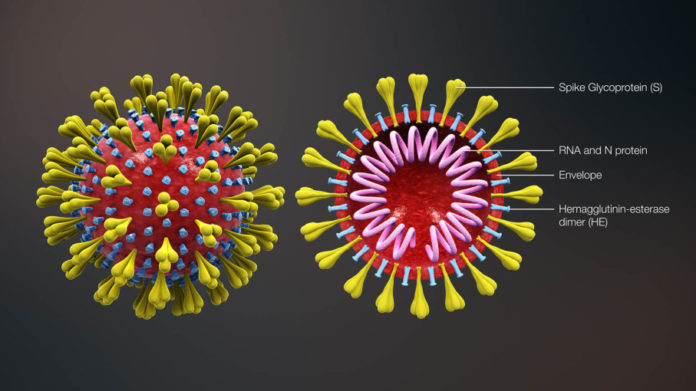A study by the Indian Council of Medical Research (ICMR) and National Institute of Virology (NIV) has revealed that pathogenic coronaviruses have been found in two species of Indian bats. This is the first-time presence of coronavirus has been found in Indian bats.
According to the study, the virus was found in the Indian Flying Fox and the Rousettus (old world fruit bats).
The study collected samples from 25 bat species from Kerala, Tamil Nadu, Himachal Pradesh and Puducherry among other states as well.
Officials at the ICMR say that it is too early to say of these viruses can affect humans. The study being carried out by the premier medical institution in the country aims to research the presence of bat coronaviruses and to identify viruses with epidemic potential.
As a part of the study, 508 samples of the Indian Flying Fox and 78 samples of the Rousettus bats. Four samples of the Rousettus and 21 samples of the Indian Flying Fox were known to be positive. Samples from these bats were collected in 2018 and 2019 from forests in Kerala, Karnataka, Tamil Nadu, Himachal Pradesh, Punjab, Gujarat, Odisha, Telangana, Chandigarh and Puducherry were there were a number of roosting sites of these bats.
All of the Rousettus bats that where tested positive were from Kerala, whereas 12 from the 21 positive Indian Flying Foxes were from the state. Out of the other nine positive Indian Flying Foxes, six were from Puducherry, two from Himachal Pradesh and only one from Tamil Nadu.
The study further reveals that only rectal swabs were testes positive in all bats, whereas all throat swabs tested negative. Continuing their research, ICMR is all set to test two more species of bats.
Bats are known to be a host to many viruses, some of which impact humans. The ongoing novel coronavirus pandemic is also thought to have been originated from a bat and transferred to humans subsequently.

